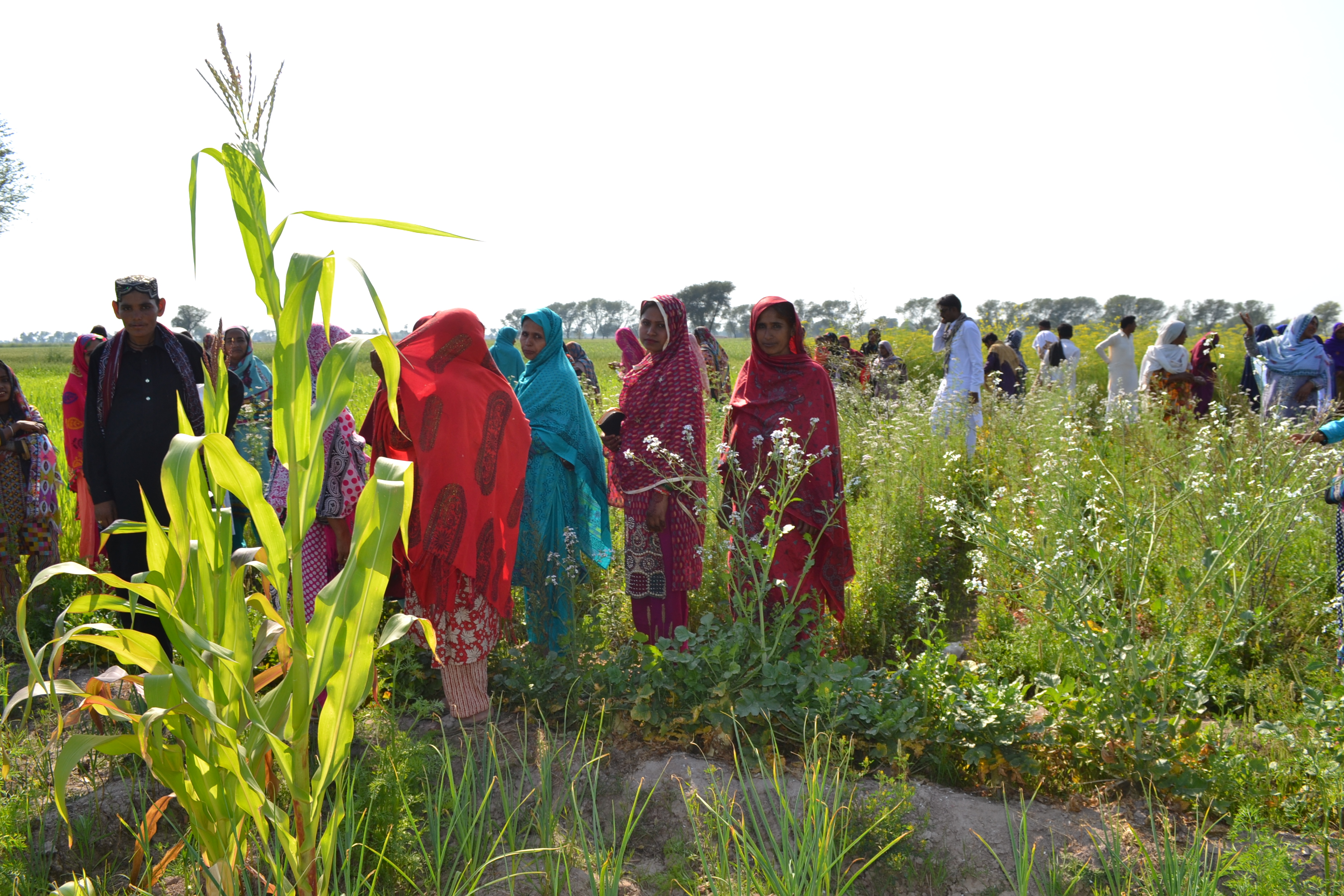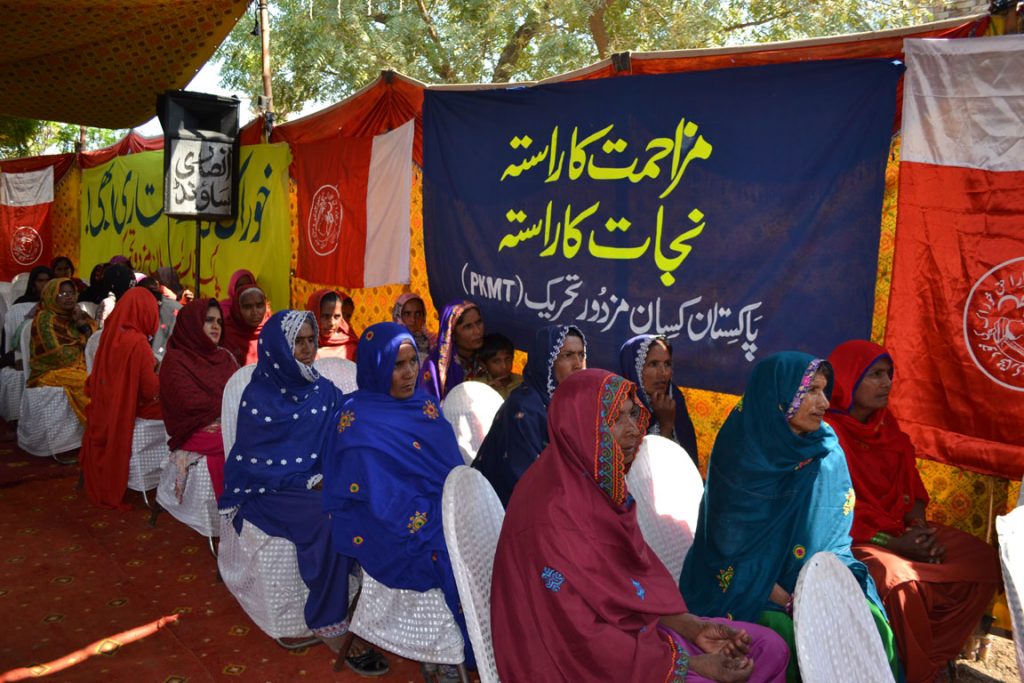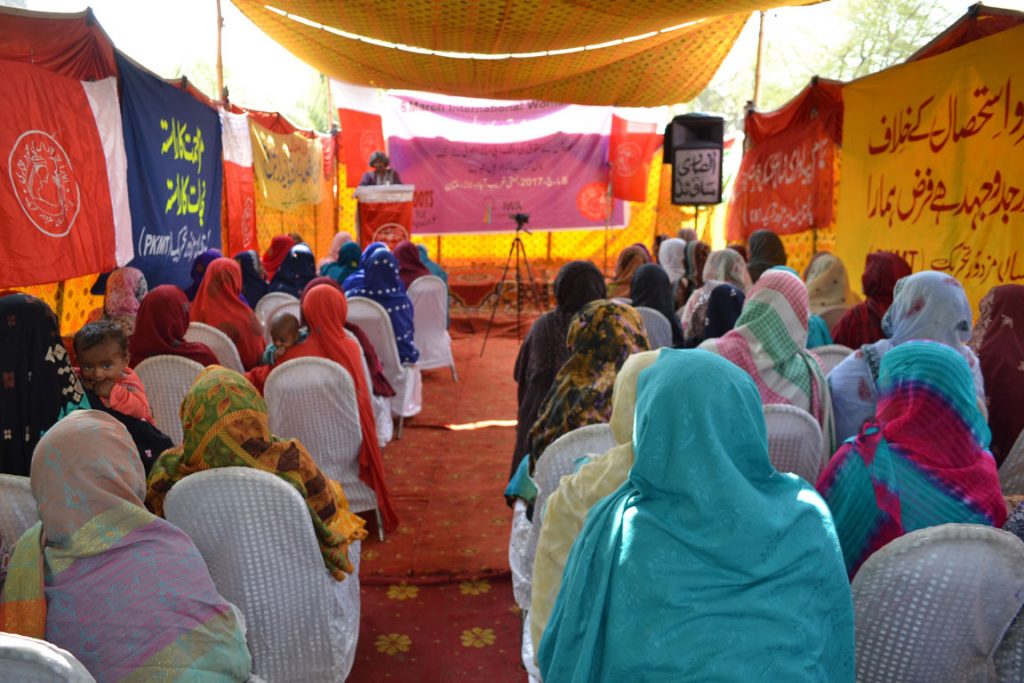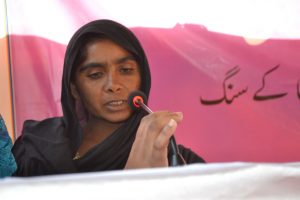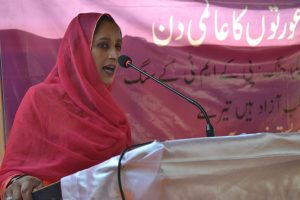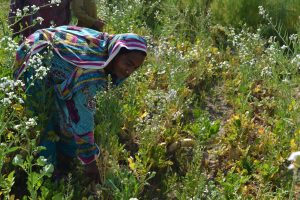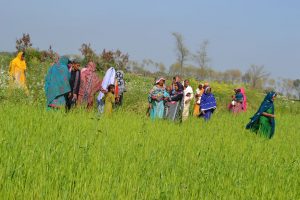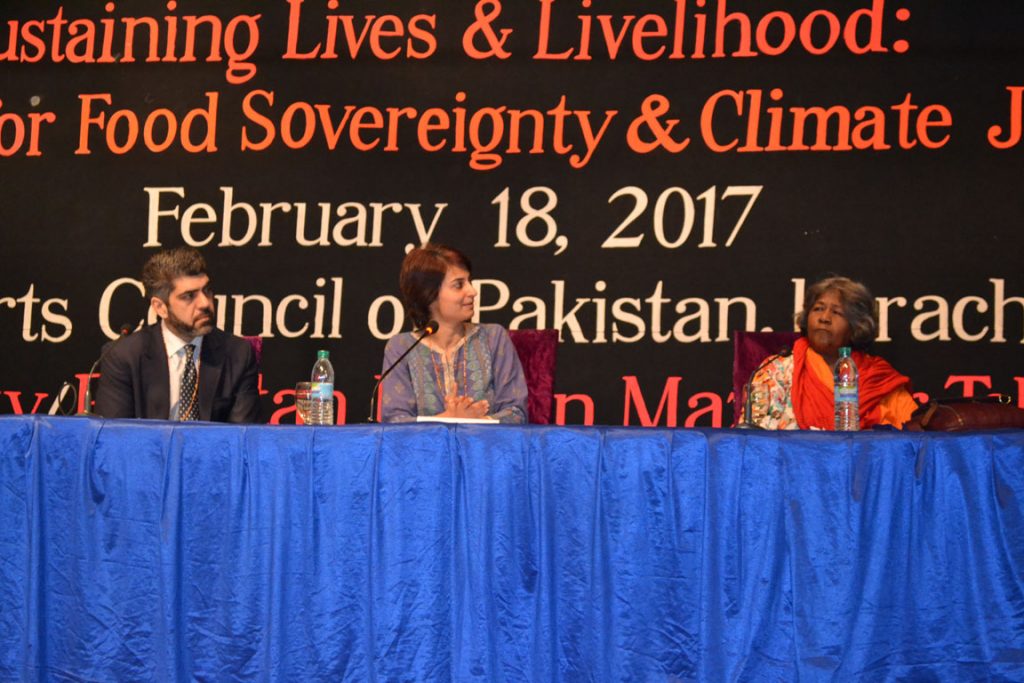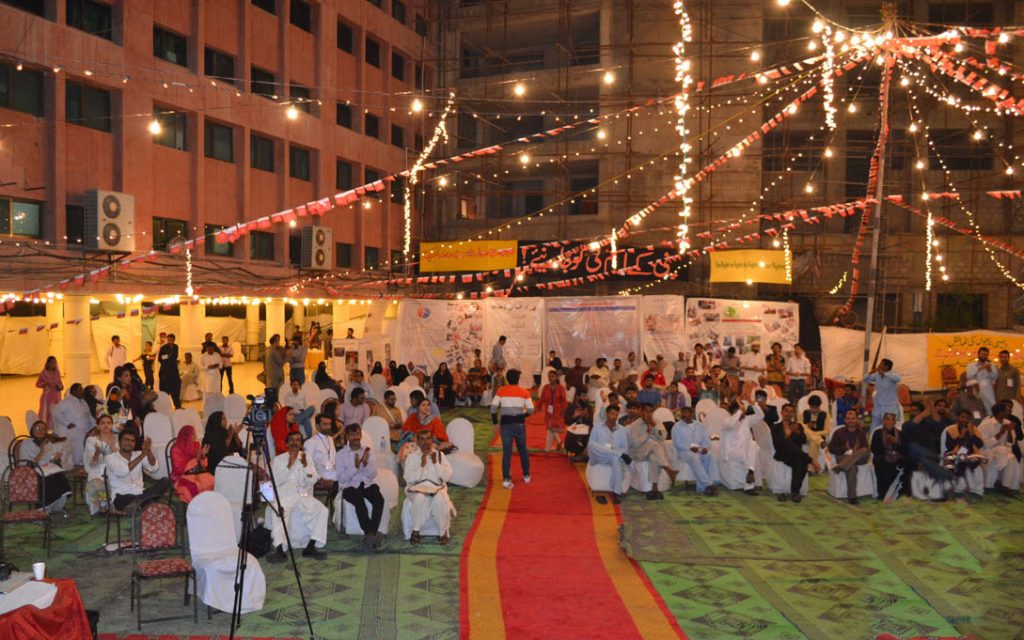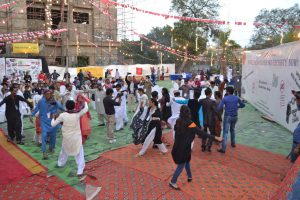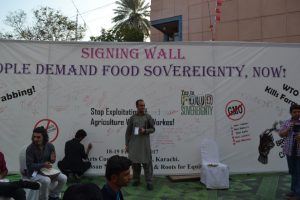Pakistan Kissan Mazdoor Tehreek (PKMT), International Women’s Alliance (IWA) and Roots for Equity, Pakistan celebrated International Women’s Day in a village named Busti Gharibabad, Lar, Multan. The event was attended by PKMT women members as well others from Tando Mohammad Khan, and Ghotki districts of Sindh and Multan, Punjab.
The event was started with women greeting each other and celebrating their struggle and victories across the many years of struggle. The thrust of the day’s event was to highlight the need for further organizing of agriculture women workers and landless farmers, and working women across all classes in the ongoing struggle against imperialist agriculture policies, as well as the strangle hold of feudal structures, customs that go hand in hand with patriarchy that are devastating women’s lives.
Rural women spoke out against the curtailing of economic rights especially against landlessness of women farmers, forcing them to work at very low wages. An especial focus was on lack of access to education that women, especially young girls had to face due to patriarchal norms. Women also stressed the lack of political rights, especially in decision making in any aspect of their lives. A young woman Nadia from Lar highlighted the constant vigilance that young women faced at the hands of their families and communities, allowing them the ‘freedom’ to go to work but otherwise forcing them to live a ‘prisoner-like’ life where their mobility was severely curtailed. Pathani a young small farmer, spoke on the critical role of access to education for girls and young women, as well as organizing women to resist patriarchy, feudalism and industrial agriculture.
Faiza Shahid, Roots for Equity spoke against neoliberalism – she highlighted “that on one hand modern technology was being used for farming practices but on the other hand women were being forced to carry out back-breaking work on pittance.” Based on Roots for Equity’s ongoing research on agriculture women workers, she elaborated that women have to not only work many extra hours, but were also travelling to far-off sites in search for work. They were exposed to toxic chemicals and pesticides with being provided any occupational health and safety measures. There is no doubt that these pesticides not only impact the health of women and children, including pregnant women but also have extremely adverse environmental impacts.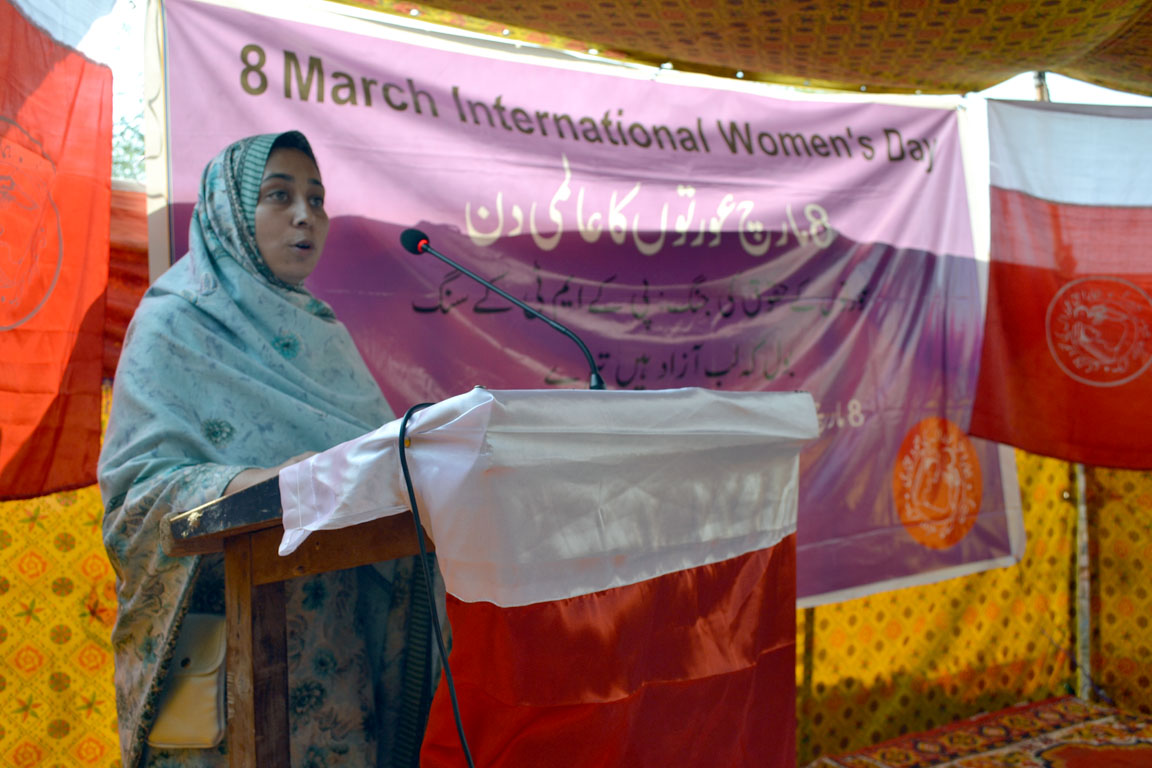 Women farmers stressed their role as seed savers. It was pointed that though women have traditional knowledge of maintaining and preserving nature and the environment but now capitalist science claims their knowledge and technology supersedes centuries old traditional knowledge held by women. It is tragic and extremely hazardous that capitalist science is providing hybrid and genetically-engineered seed that cannot even be used in the next season – and a major cause of not only pauperizing farmers but also environmental pollution.
Women farmers stressed their role as seed savers. It was pointed that though women have traditional knowledge of maintaining and preserving nature and the environment but now capitalist science claims their knowledge and technology supersedes centuries old traditional knowledge held by women. It is tragic and extremely hazardous that capitalist science is providing hybrid and genetically-engineered seed that cannot even be used in the next season – and a major cause of not only pauperizing farmers but also environmental pollution.
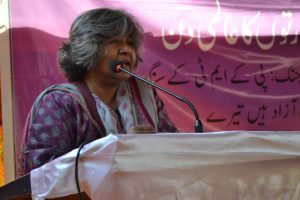 Azra Talat Sayeed, Chairperson IWA spoke on the rights and responsibilities faced by rural women, especially landless farmers and agricultural women workers to spearhead the struggle against patriarchy, feudalism and neoliberal policies that are encroaching into the political and economic and social domain of women’s lives. The ongoing wars of capitalist aggression have had immense impact on the lives of women, and rural communities. She elaborated the cooperative role of women in Swat, Pakistan and other areas of Khyber Pakhtunkwa (KPK) in looking after families who were forced to migrate from the war zones. She highlighted the power of women that can be used to break the chain of patriarchal norms, values and practices that results in acute discrimination faced by girls and young women. Women’s rights include the right to life, the right to healthy nutritional food, the right to education and health, the right to decent livelihood, the right to land, the right to self-determination, the right to organize against oppressive conditions, and of course the right to collective resistance against triple-pronged forces of capitalism, feudalism and patriarchy. She elaborated that it is in women’s hand to challenge these practices at home and in the community – only then a strong chain of resistance against domestic and economic violence faced by women could be pushed back and dismantled.
Azra Talat Sayeed, Chairperson IWA spoke on the rights and responsibilities faced by rural women, especially landless farmers and agricultural women workers to spearhead the struggle against patriarchy, feudalism and neoliberal policies that are encroaching into the political and economic and social domain of women’s lives. The ongoing wars of capitalist aggression have had immense impact on the lives of women, and rural communities. She elaborated the cooperative role of women in Swat, Pakistan and other areas of Khyber Pakhtunkwa (KPK) in looking after families who were forced to migrate from the war zones. She highlighted the power of women that can be used to break the chain of patriarchal norms, values and practices that results in acute discrimination faced by girls and young women. Women’s rights include the right to life, the right to healthy nutritional food, the right to education and health, the right to decent livelihood, the right to land, the right to self-determination, the right to organize against oppressive conditions, and of course the right to collective resistance against triple-pronged forces of capitalism, feudalism and patriarchy. She elaborated that it is in women’s hand to challenge these practices at home and in the community – only then a strong chain of resistance against domestic and economic violence faced by women could be pushed back and dismantled.
PKMT Women presented a theater highlighting feudal exploitation and class and caste and religious discrimination faced by women, and the power of organized women groups to resist oppressive forces. A number of women presented cultural folk songs through out the event to celebrate International Women’s Day, and the role of women in their communities as survivors of oppression.
A number of women presented cultural folk songs through out the event to celebrate International Women’s Day, and the role of women in their communities as survivors of oppression.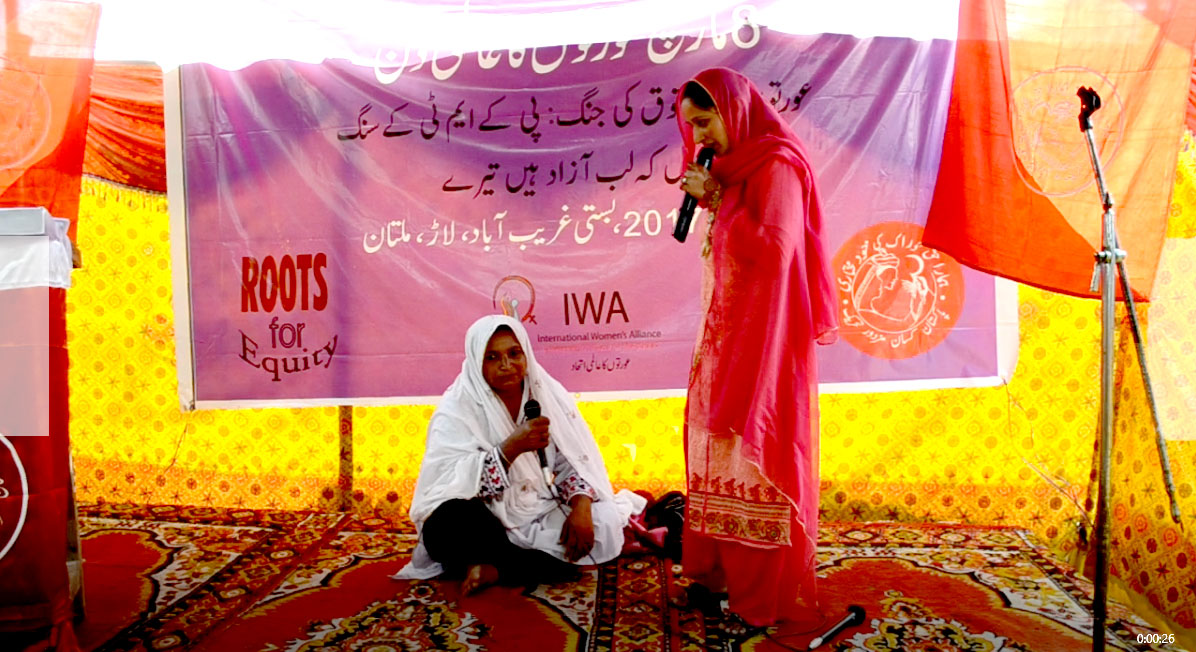 After the event, an exposure visit was arranged for the rural women from Sindh to visit the Roots for Equity trial farm in Multan. Many of these women have also been saving seeds and maintaining in-situ seed banks as to rebut imperialist seed laws that have granted seed rights to commercial breeders. During the visit, women farmers provided their feedback in maintaining the vegetable and wheat seeds that were being grown on the trial farm. The provided their input on the traditional farming practices that were being carried out at the trial farm in managing weeds in wheat fields. Women were especially appreciative of vegetable seed bank as there is less and less practice of growing vegetables for household consumption, and there is an acute lack of local vegetable seeds.
After the event, an exposure visit was arranged for the rural women from Sindh to visit the Roots for Equity trial farm in Multan. Many of these women have also been saving seeds and maintaining in-situ seed banks as to rebut imperialist seed laws that have granted seed rights to commercial breeders. During the visit, women farmers provided their feedback in maintaining the vegetable and wheat seeds that were being grown on the trial farm. The provided their input on the traditional farming practices that were being carried out at the trial farm in managing weeds in wheat fields. Women were especially appreciative of vegetable seed bank as there is less and less practice of growing vegetables for household consumption, and there is an acute lack of local vegetable seeds.
Women farmers were explained the experiment being carried out to test the productivity of traditional wheat varieties under agro-chemical methods as well as traditional methods using green and animal manure. Women farmers commented that such experiments were very important to expose the agro-chemical corporate sector propaganda, which lays claims on very high yield per acre. The exposure visit ended with the women’s long journey back to their homes across the villages of Sindh.